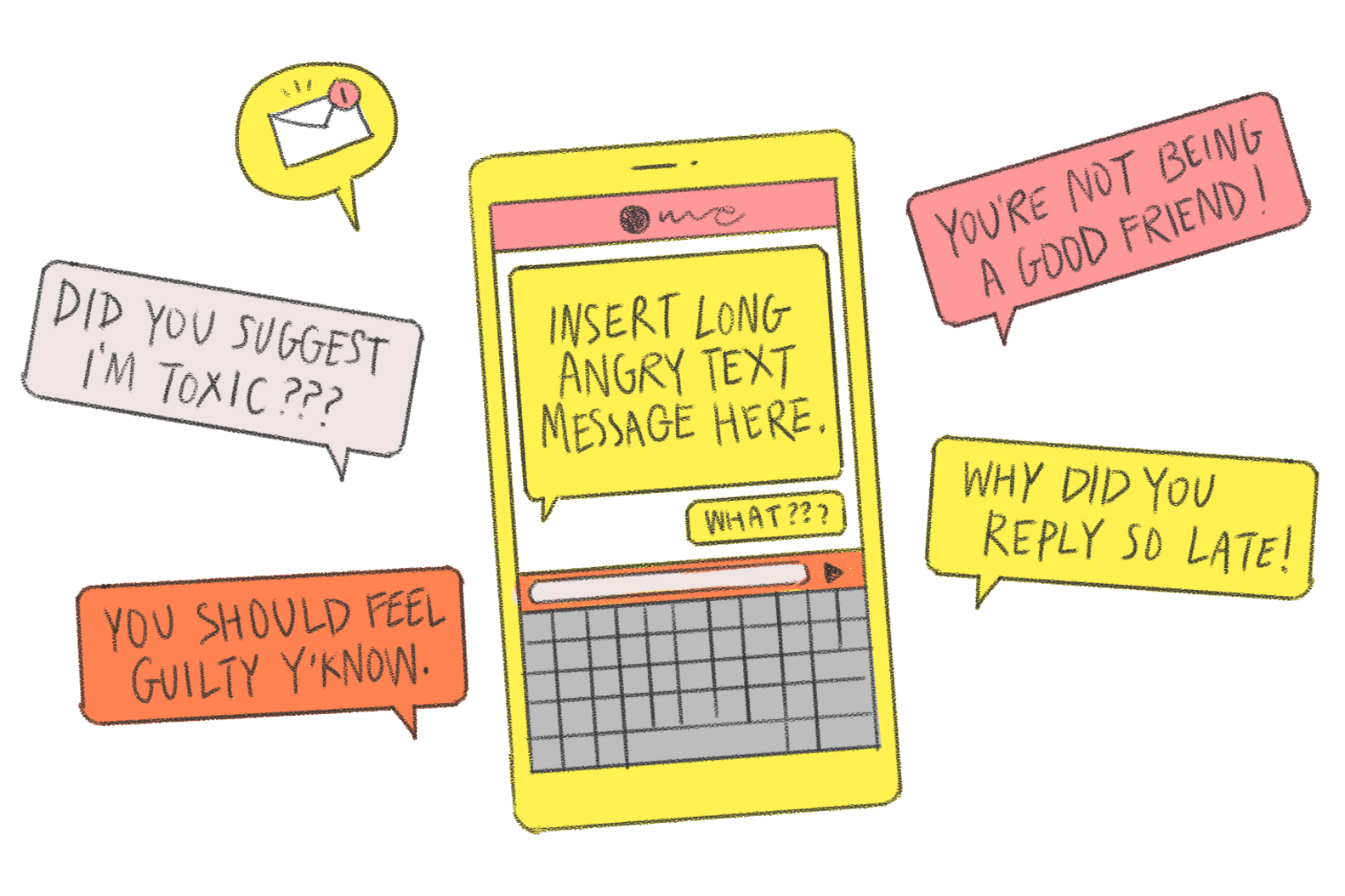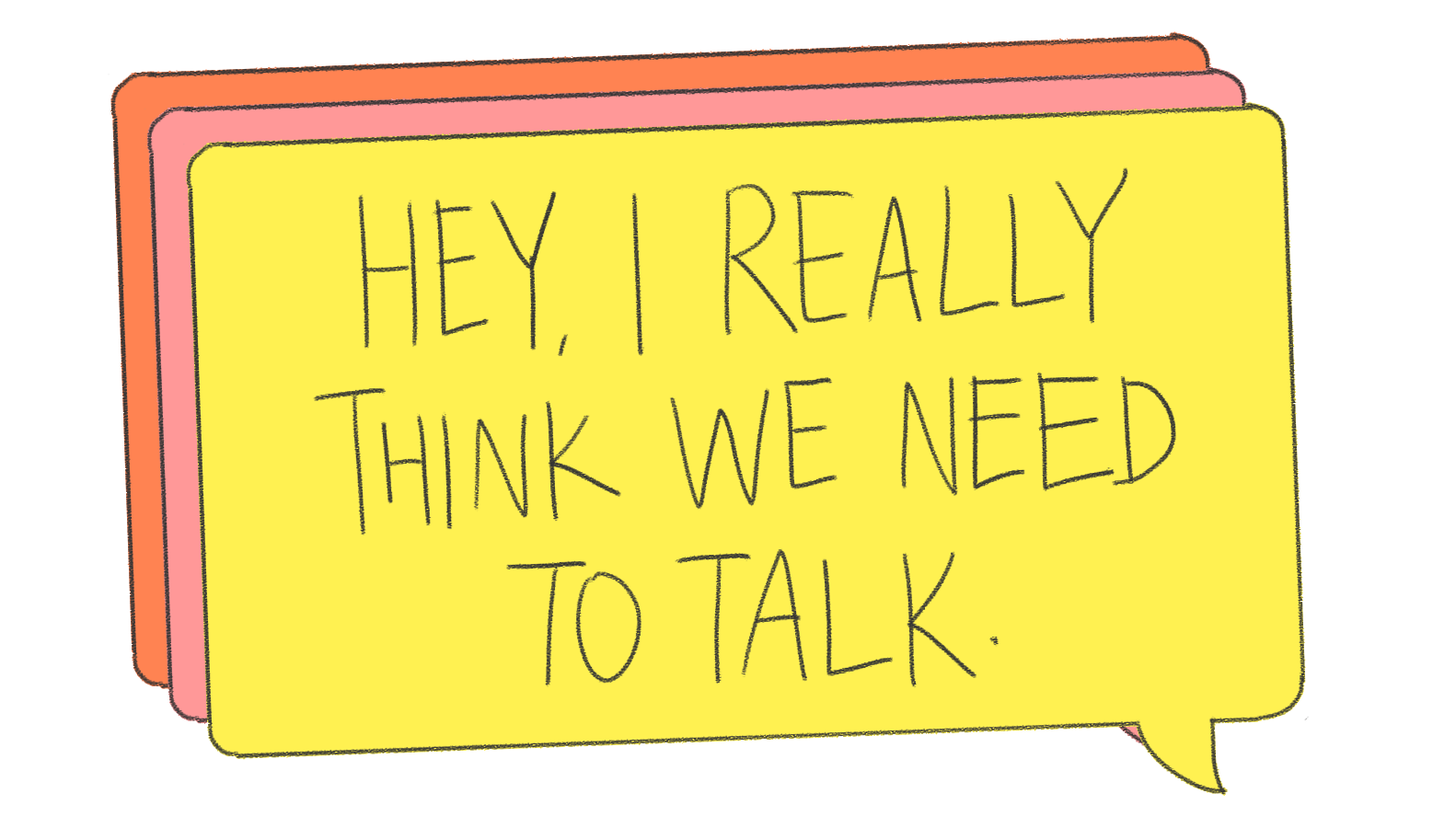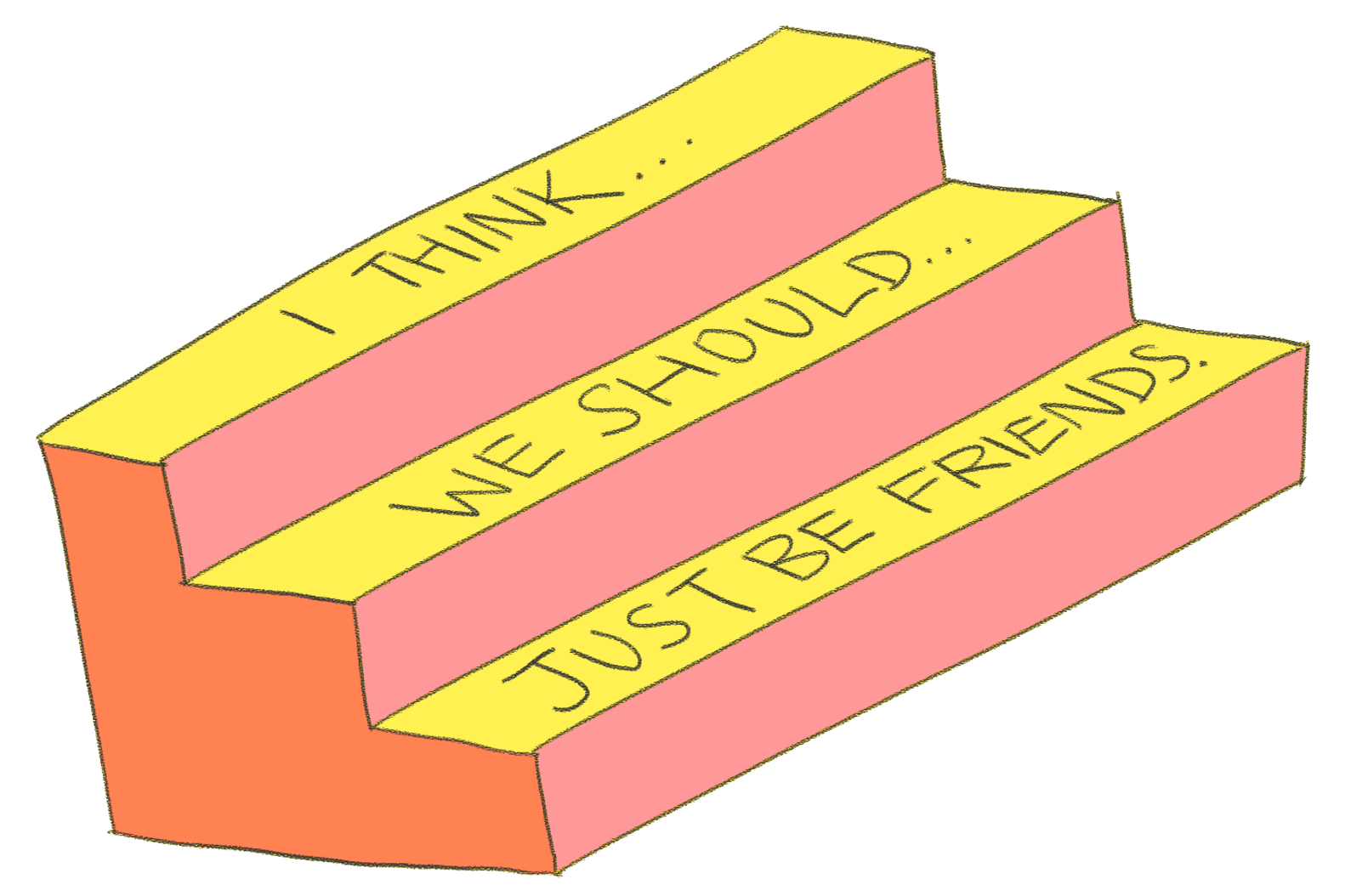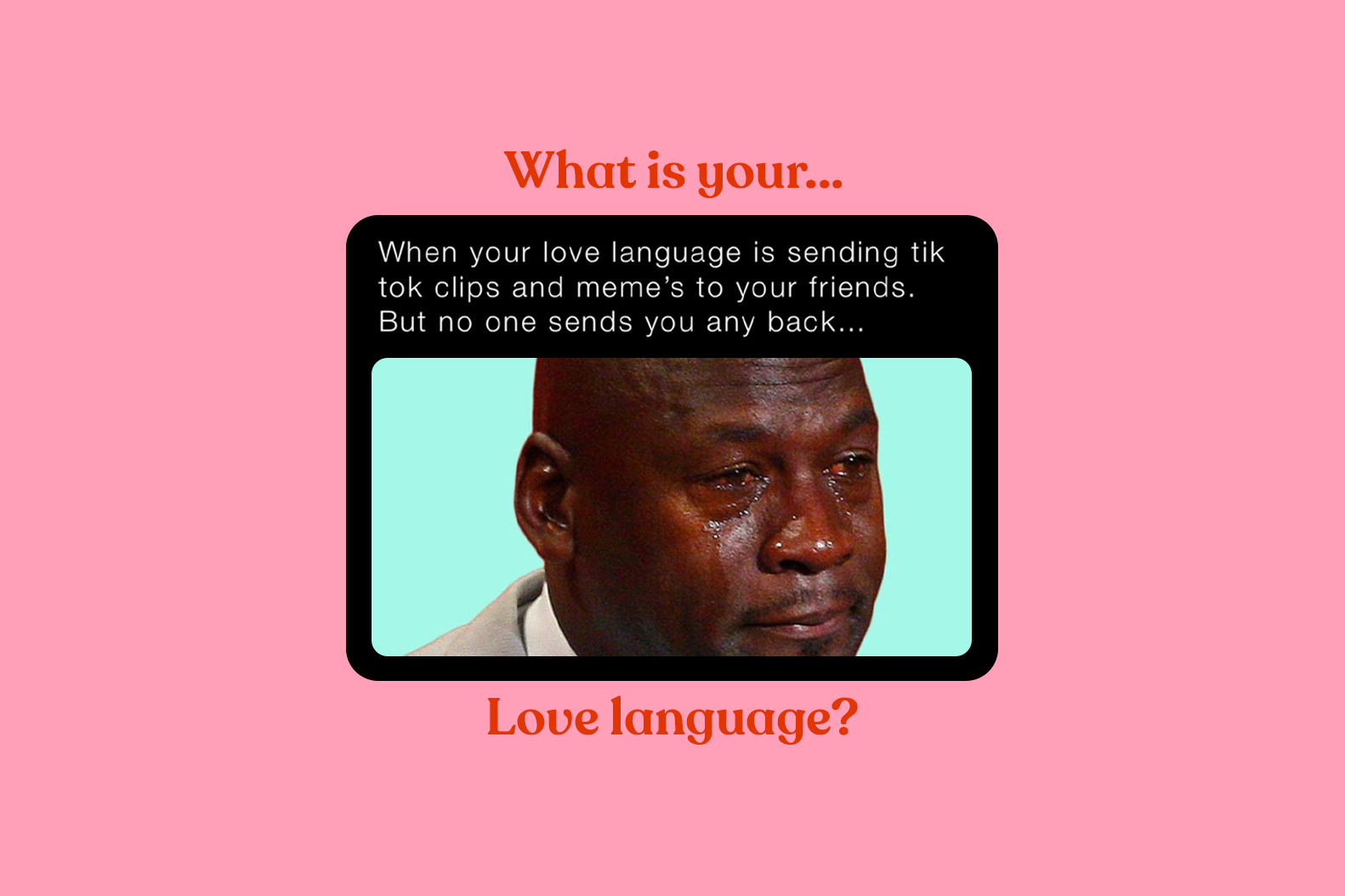“I think we should just stay friends.”
That day, I drew a clear line between us.
There was no turning back the clock now — the friendzone was established.
Ten months ago, we were total strangers.
I only knew Don because our teachers liked to pair us together for work based on our class register numbers.
Because of that, we frequently stayed back in school to work on our paired assignments and study together. He was nice and friendly, and conversation flowed naturally between us.
Soon, we became good friends. We texted each other every day, even if we didn’t have assignments to complete together.
Wishing each other “good morning” and “good night” became normal.
Don seemed like someone I could trust. And as I got to know him better, I made the mistake of not drawing clear boundaries in our friendship.
For example, I would stay up way past midnight just to reply his messages, even though I usually sleep before then.
This led to him sharing some of his personal and family struggles which further blurred the boundaries.
As a friend, I felt compelled to advise him and pray for him. I also invited him to church since he was open to knowing God.
I made the mistake of not drawing clear boundaries in our friendship.
This went on for a couple of months, until I realised that our friendship was rather problematic.
Don would be frustrated if I didn’t reply to his messages quickly enough. He didn’t like it when I had to meet with other friends for another group project. And he would practically ignore me in school if he was angry, which made paired assignments very difficult to complete.
One morning, I woke up to a deep tugging within me that I should be very cautious around him. This nudging proved to be very timely.
In the weeks to come, Don would send me barrages of text messages, accusing me of not being a good friend to him.

I remember crying after reading them, feeling guilty and hurt but also confused since I knew that I had been listening to his rants and guiding him in schoolwork.
For a period of time, I actually bought into the lie that I was not being a good friend to him. But the more I tried to accede to his demands to prove that I did care for him, the more suffocating it was to be around him.
When I tried to explain to him that he was being unreasonable, we got into several arguments.
It reached the point where I would always pray and ask God for strength to face the day, as I dreaded going to school to meet him.
The wake-up call
Friendship with Don was like holding a grenade. I didn’t feel safe around him. But at the same time, I felt like I couldn’t let go.
I was concerned that his personal and family problems would overwhelm him if I stopped supporting him.
I was also worried that I would be a bad example of Christians if I just dropped the friendship, since he was still exploring the faith.
It didn’t help that he would also play the “you’re not a very good friend” card, and I would be guilt-tripped into holding on.
Feeling trapped, I confided in my mother, my closest friends and a few of my leaders at church.
All of them pointed out that Don was emotionally blackmailing me, and it was a very toxic dynamic.
They also mentioned that he was placing “girlfriend” expectations on me, even though we had established that we were just friends.
After praying for me and ministering to me, my leaders encouraged me to set things straight.
So, I asked Don out over the holidays after our exams.

As I had never friendzoned anyone face-to-face before, I tried to prepare as much as I could for the meeting.
I thought of mental scenarios that could happen. I listed down all the reasons why I thought we should remain as friends, and I made sure I could verbalise them coherently.
As I didn’t want to hurt his feelings any more than the friendzone would, I avoided blaming him. Instead, I chose reasons like “we have different expectations for this friendship” and “we’re not compatible with each other”.
Most importantly, I let my mum in on the plan. She prayed for me and advised me to be gentle but firm. I also let her know where I would be going in case anything bad happened.
Finally, on the day before Don and I met, I prayed and asked God specifically for four things:
- That the weather would be cloudy and windy, since I was planning to have this conversation outdoors.
- That we would be able to have this conversation on steps.
- That there would be people around us, close enough to call to for help if anything happened, but far enough to keep our conversation personal.
- That Don wouldn’t be angry.
However, when I woke up the next morning, it was raining cats and dogs!
Maybe God had said “no” to my prayer, I thought. But I was wrong.
By afternoon, the rain had stopped. It became a cloudy and windy day, just as I had prayed.
When I met Don, we walked and talked along the streets, until we decided, on the spur of the moment, to board a random bus and alight at a random stop.
Upon alighting at a stop Don selected, we saw that there was a place for people to sit and chill… on steps.
What were the odds? I knew then this was God graciously assuring me that He was there.

So, sitting there on the steps, I broke it to Don: “I think we should just stay friends.”
Silence fell upon us as the words sank in. After a while, Don said, “I should be angry, but I feel like something inside me is telling me not to get angry.”
I looked at him, stunned and amazed at God. He had truly worked in Don’s heart!
We had a good conversation after that. Don accepted that I was not interested in him, and we apologised to each other for all the hurt caused to each other.
Making things clear between us was a necessary step to spare either of us from more hurt, so I was thankful God helped me to see the conversation through.
After the friendzone
The truth is, friendzoning someone hurts both parties. It should never be an “easy” thing, since there are real feelings involved.
We may not be able to reciprocate the other party’s feelings, but we can exercise care and compassion when responding to them.
As I reflected on how things could have gone differently between us, I repented to God for not drawing boundaries clearly from the start.
We stopped texting daily, and I avoided situations in which I would be alone with Don. I resolved to only talk about school matters with him whenever we had to work together again.
I’ve realised how important it is to guard my heart and draw clear boundaries.
Now I am more mindful of the signals I might be sending, especially in friendships with the opposite gender.
If you ever find yourself needing to place someone in the friendzone, I hope you do so gently, firmly and prayerfully, after seeking godly counsel.
- What is one thing that stood out to you in the writer’s sharing?
- What does keeping healthy boundaries with others look like to you?
- What other godly principles are good to bear in mind when rejecting someone’s advances?









